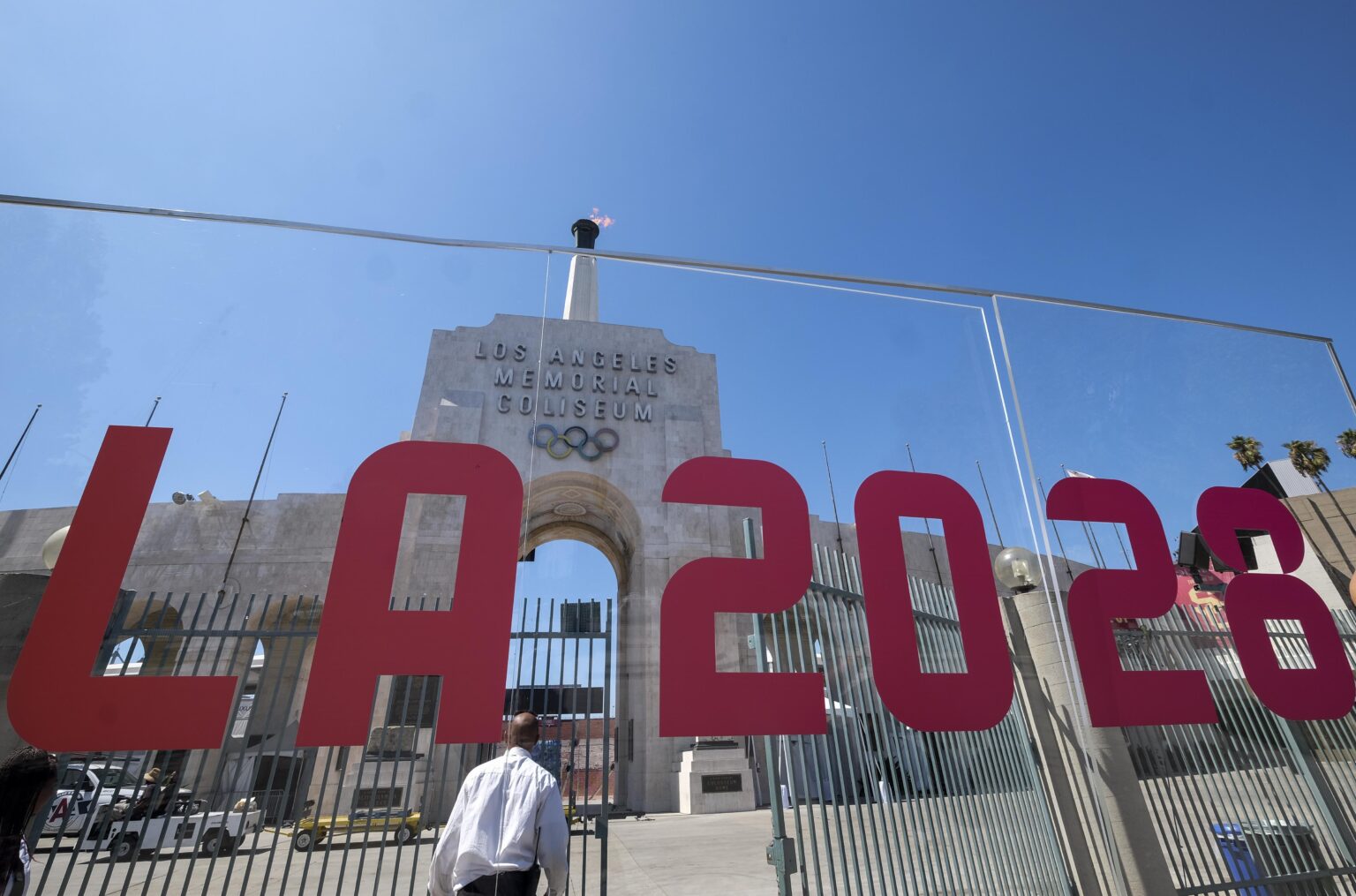
Media Contact: Alondra Ponce, alondra.ponce.432@my.csun.edu, or Carmen Ramos Chandler, carmen.chandler@csun.edu, (818)-677-2130
The Olympics and World Cup provide worldwide entertainment and tourist dollars to the host cities as thousands of people from all over the globe travel to watch a match. But that level of interest and demand takes a toll on both athletes and the cities, raising questions about the events’ purpose and impact, according to Chris Bolsmann, a kinesiology professor at California State University, Northridge.
With international reputations at stake, the cities and countries hosting these are responsible for providing infrastructure that must accommodate hundreds of thousands of visitors and thousands of athletes — from stadiums and accommodations to ways to get to the events, said Bolsmann, a trained sociologist who writes about mega events in sports such as the FIFA World Cup, as well as the Summer and Winter Olympics.
When it comes to the 2028 Summer Olympics, Los Angeles may have stadiums in place but their construction and, in some instances, upgrades, have impacted the communities that house them, such as Inglewood, he said.
“Traditionally African-American neighborhoods are now being gentrified,” he said. “Local people are being priced out of their neighborhoods, which is a direct relationship to what is happening in anticipation of 2028. Yes, the city is developing and growing, but at the expense of the working-class people and people who will never have access to these events, as well as people without homes who will be moved from areas to create a spectacle that we are a city that does not have issues with poverty and homelessness.”
As for transportation, it could take generations before Los Angeles’ system of trains, subway cars and buses can be greatly improved, said Bolsmann, who teaches in the College of Health and Human Development.
“There is value in the argument that Los Angeles only lacks transportation, but it is not going to be resolved by 2028,” he said. “It is still relatively small today, but it used to be much bigger.”
The city’s lack of good public transportation can be blamed on its car-obsessed history, Bolsmann said.
“During the 1920s they boarded out train lines and companies and pulled out the tracks because they wanted people to buy cars,” he said. “So, there is a long history of excluding working-class people from accessing public transport.”
Along with cities having to adjust to create space for these events, players must also adjust to an increased and punishing training and game schedule, Bolsmann said.
“Take soccer for example,” he said, “We see that women soccer players are suffering from terrible injuries due to being overplayed and overtrained.
“We’ve found the same in men’s soccer,” he continued. “There currently is discussion of increasing the World Cup in 2026 to 48 teams, up from 32, to enlarge the tournaments so that more games are played. It’s treating athletes as commodities rather than human beings that have bodies that break down.”
Bolsmann said many of the commercial co-sponsorships of the events actually undermine the inspiration for health and fitness they may provide.
“Events such as the Olympic games or the World Cup can be very inspiring, and have athletes from all over the world, some from poorer countries that go against all odds and win medals. Some athletes have gotten this far without proper training facilities in their home countries in the first place,” he said. “They can be inspiring stories, but when we look at the corporate sponsors of many of these events, such as Coca-Cola for FIFA, it reflects they are not serious about using sports to inspire healthy populations or wellbeing.
“My argument is that if the International Olympic Committee and FIFA were serious about using sports to inspire healthy populations or wellbeing, they would not be taking money from these companies and treating the athletes poorly in the sense that they get worked to the point that they can’t even compete anymore,” Bolsmann said. “You may win a gold medal but what is the real tangible outcome of that?”
Moving forward, change will have to come from the consumers, he said.
“These organizations make billions of dollars, and they will keep this going,” he said. “We, as fans of these products, need to reimagine these events. There are several organizations that work for changes, which suggest that some things are possible. Like any change in society, it can only come from below.”




Comments are closed.